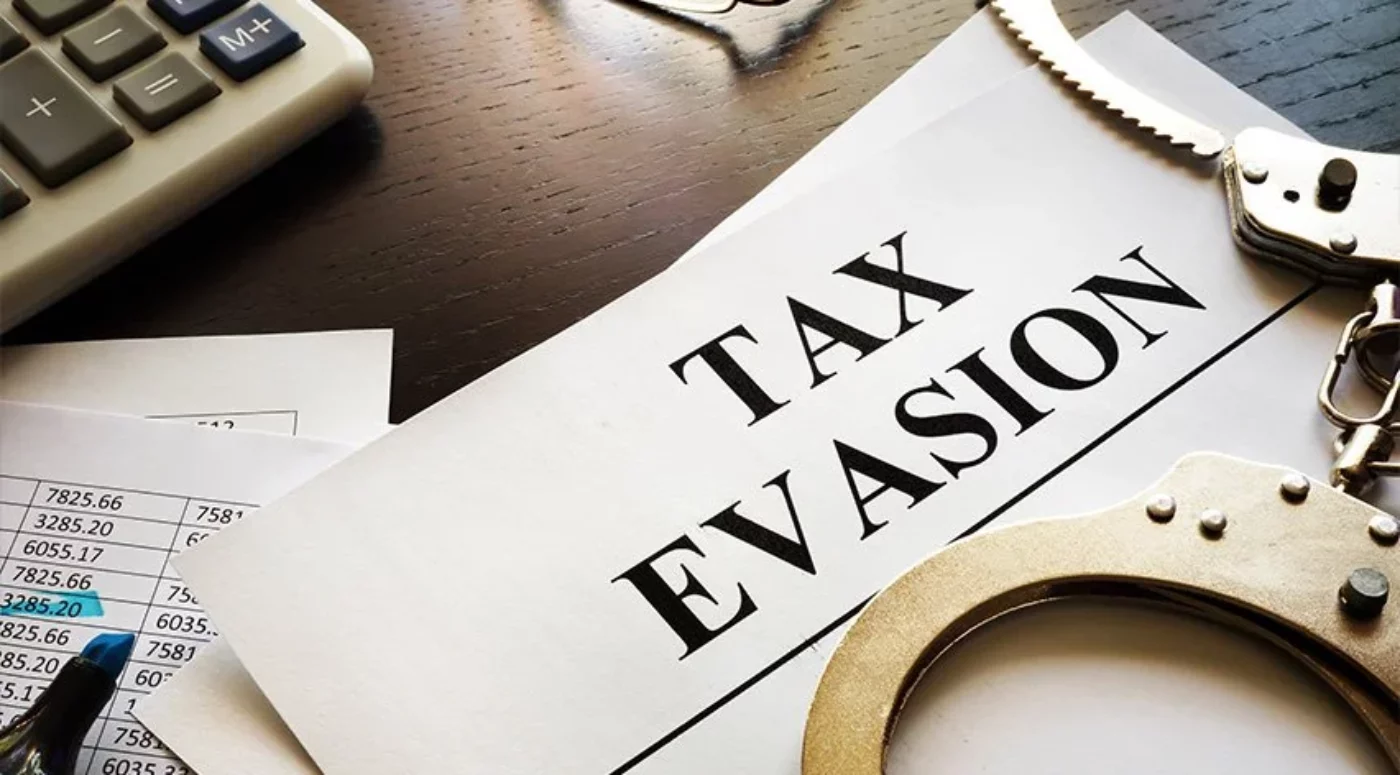

According to the latest data, HM Revenue and Customs (HMRC) pursued over 1,000 prosecutions for tax evasion in the last year alone, making it essential to seek help from a qualified solicitor as early as possible if you are facing such charges. This article will guide you through some of the most pressing concerns you might have. We will address questions such as, “Do I need a solicitor for tax evasion?”, “What are possible defences for tax evasion?”, and “Will I get bail for tax evasion?” By the end of this article, you’ll have a clearer understanding of what to expect and how to protect your interests effectively.
Do I need a solicitor for tax evasion?
If you find yourself facing charges related to tax evasion, you might be wondering whether you need a solicitor to handle your case. Tax evasion is a serious offence under English law, carrying significant penalties including hefty fines and possible imprisonment. Having a criminal defence solicitor can make a real difference in how your case is managed and the outcomes you achieve.
Tax law is complex and constantly evolving. A criminal defence solicitor who specialises in tax evasion will have the in-depth knowledge and understanding of the legislation necessary to effectively navigate your case. They can help clarify the nature of the charges against you, explain potential defences, and evaluate the strength of the evidence presented by the prosecution.
A solicitor can also build a robust defence strategy tailored to your specific situation. This might involve gathering and presenting evidence to challenge the prosecution’s case, advising on the potential benefits and risks of pleading guilty, and negotiating with the authorities for a more favourable outcome. For example, depending on the circumstances, your solicitor might be able to argue that there has been a misunderstanding or demonstrate that you have made substantial efforts to repay any outstanding tax liabilities.
The potential consequences of a tax evasion conviction are severe so getting an experienced tax evasion defence solicitor onside as early as possible is critical.
What are possible defences for tax evasion?
Tax evasion is very much considered a serious criminal offence in the UK, as it involves the illegal non-payment or underpayment of taxes owed to HMRC. Despite this seriousness, like all crimes, if you are facing charges of tax evasion, several defences may be available to you.
- One potential defence is the lack of intent to defraud. The prosecution must prove that you acted with deliberate intent to evade tax. If you can demonstrate that any errors or omissions were accidental or the result of miscommunication, this could form a strong line of defence.
- Another defence could be reliance on professional advice. If you sought advice from a qualified accountant or tax advisor and followed their guidance in good faith, you might argue that you relied on their expertise. To utilise this defence, it is crucial to provide evidence of the professional advice you received and show that your actions were consistent with this advice.
- Mistakes and misunderstandings regarding tax obligations can also be used as a defence. Tax laws are complex, and honest mistakes can occur. If your failure to pay the correct amount is due to a genuine mistake or a misunderstanding of the tax regulations, this can be a valid defence.
- Voluntary disclosure is another possible defence. If you proactively disclose any underpaid tax to HMRC before they begin an investigation, this can sometimes mitigate charges. Voluntary disclosure often leads to reduced penalties and can demonstrate a willingness to rectify the situation.
- In some cases, duress may be a viable defence. If you were coerced or forced into evading taxes under threat or harm, this can be a legitimate reason for your actions.
Will I get bail for tax evasion?
Whether you will be granted bail for tax evasion depends on several factors, as bail decisions in England are generally based on specific criteria set out by the court. In tax evasion cases, magistrates or judges will weigh these factors heavily before making a decision. The main factors that will be considered include:
- Firstly, the court will consider the severity of the offence. Tax evasion can be a serious charge, particularly if large sums of money are involved or if the evasion has occurred over a long period. Serious offences might make it more challenging to obtain bail.
- Secondly, the court will evaluate your criminal history. If you have prior convictions, particularly for similar offences, this could negatively impact your chances of being granted bail. The court may view you as a higher risk.
- Thirdly, the court considers the risk of absconding. If the court believes you are likely to flee and not appear for your trial, bail is less likely to be granted. Elements that might influence this include your connections to the community, whether you have stable employment, and if you have a fixed residence.
Will I have to go to court if I’m arrested or charged for tax evasion?
Whether you will need to go to court for tax evasion largely depends on the nature and gravity of the allegations against you. Tax evasion cases can be handled in different ways, so you may not need to go to court at all. Some of the ways these cases are handled include:
- HMRC Investigation: Initially, your case may be investigated by HMRC. If they suspect that you have deliberately evaded tax, they might start a formal investigation. During this stage, it is crucial to cooperate fully with HMRC and seek legal advice from a criminal defence solicitor who specialises in tax-related matters.
- Civil vs Criminal Proceedings: Not all tax evasion cases result in criminal proceedings. In some instances, HMRC may deal with the matter through civil procedures, which typically involve financial penalties and repayment of the owed tax. However, if HMRC believes that the evasion was intentional and sufficiently severe, they may pursue criminal prosecution.
- Voluntary Disclosures: If you come forward voluntarily to disclose unpaid taxes before HMRC begins an investigation, you might avoid criminal charges. HMRC has initiatives like the Contractual Disclosure Facility (CDF) that encourage voluntary disclosures, which usually result in financial settlements rather than court cases.
Will I go to jail if found guilty of tax evasion?
Whether you will go to jail if found guilty of tax evasion depends on a variety of factors, including the specifics of your case and the decisions made by the court. Considerations include:
- Amount of Tax Evaded: Generally, the larger the amount of tax evaded, the more severe the penalty. Significant amounts of evaded tax may result in harsher sentences, including imprisonment.
- Duration of the Evasion: If the tax evasion has been ongoing for many years, it can lead to more severe penalties compared to a one-time occurrence.
- Level of Intent: Deliberate and fraudulent tax evasion is considered more serious than errors or misunderstandings. Intentional evasion to deceive HMRC will likely result in heavier penalties.
- Cooperation with Authorities: If you have cooperated with the authorities during their investigation, shown remorse, or made efforts to repay the evaded tax, these factors may be taken into account and could potentially reduce the severity of your punishment.
Penalties for tax evasion may include:
- Financial Penalties: Fines and interest on the unpaid tax are common forms of punishment. These financial penalties can be substantial.
- Imprisonment: For more serious cases, imprisonment is possible.
Will I go to jail if it’s my first offence of tax evasion?
If it is your first time offence of tax evasion, there is still a possibility that you will go to jail, but the judge will also take into account the fact that it is your first offence and that counts as a mitigating factor, which lowers the severity of any sentence you will receive. Overall, judges are trying to come to a balanced decision as to what is appropriate given the specific circumstances of the case.
While jail time is possible even for first-time offenders, alternatives such as fines or suspended sentences might be considered, especially if the amount evaded is relatively small and you show genuine remorse and willingness to make amends.
Can I get Legal Aid for tax evasion?
Legal Aid for tax evasion cases is possible, but it is rather limited. Eligibility depends on your financial situation and case complexity, and you must pass a means test, proving low income and limited assets. The case must also meet the ‘interests of justice’ test, showing its seriousness and potential consequences.
Where to get more help
Understanding your rights and the legal process can significantly reduce your stress. Stuart Miller Solicitors are dedicated to assisting you through every step of your case, ensuring the best possible outcome. If you need expert legal help, don’t hesitate to get in touch with our team today.
OUR COMMITMENTS TO YOU:
-
Responsive
A legal expert will consult you within 24 hours of making an enquiry.
-
Empathetic
We will always treat you with trust, understanding and respect.
-
Specialised
Your case will be handled by an expert who specialises in your type of offence.
-
Proactive
We will take early action to end proceedings as soon as it is practically and legally possible to do so.
-
Engaged
You will be kept updated on your case at all times. We will provide a named contact available to answer your questions.
-
Caring
We understand this is a difficult and stressful time for you and your family. Our team will support you every step of the way.
-
Tenacious
We will never give up on your case. We fight tirelessly to get you the best possible outcome.

